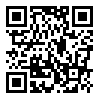Volume 3, Issue 3 (Summer 2023)
J Clin Sport Neuropsychol 2023, 3(3): 0-0 |
Back to browse issues page
Research code: مراحل انجام پژوهش با مجوز سازمان مرکزی علوم پزشکی رفسن�
Download citation:
BibTeX | RIS | EndNote | Medlars | ProCite | Reference Manager | RefWorks
Send citation to:



BibTeX | RIS | EndNote | Medlars | ProCite | Reference Manager | RefWorks
Send citation to:
Mirzaei A, Nejadi M. The effectiveness of neurofeedback training on death anxiety and cognitive flexibility in cancer patients. J Clin Sport Neuropsychol 2023; 3 (3) : 1
URL: http://jcsnp.ir/article-1-40-en.html
URL: http://jcsnp.ir/article-1-40-en.html
1- M.Sc. in Cognitive Psychology, Isfahan University, Isfahan, Iran.
2- M.Sc. Student in Psychology, Payam Noor University, Isfahan, Iran.
2- M.Sc. Student in Psychology, Payam Noor University, Isfahan, Iran.
Abstract: (1360 Views)
Background and Purpose: Cancer as a chronic physical disease causes many problems for people. Among mental health cases, anxiety and cognitive cases, cognitive flexibility are partially impaired. In the present study, neurofeedback method has been used as a safe method to improve the mentioned cases; Therefore, the aim of this study was to evaluate the effectiveness of neurofeedback therapy on death anxiety and cognitive flexibility in cancer patients.
Method: The method of the present study was a quasi-experimental and its design was pre-test-post-test and follow-up in two groups (experimental and control) and individuals were randomly divided into groups. The study sample included 32 patients with breast and ovarian cancer with chemotherapy in Rafsanjan in 2021. Participants completed the Templar Death Anxiety Questionnaire (Templer, 1970) and the Cognitive Flexibility Inventory (CFI-I, Denis et al, 2010).
Results: The results of analysis of covariance showed that neurofeedback intervention was effective for post-test and follow-up cancer patients in the experimental group. Significance for death anxiety and cognitive flexibility was less than 0.05.
Conclusion: Based on the research results, it can be concluded that neurofeedback intervention therapy has been effective in reducing death anxiety and increasing cognitive flexibility skills and psychologists can use this method.
Method: The method of the present study was a quasi-experimental and its design was pre-test-post-test and follow-up in two groups (experimental and control) and individuals were randomly divided into groups. The study sample included 32 patients with breast and ovarian cancer with chemotherapy in Rafsanjan in 2021. Participants completed the Templar Death Anxiety Questionnaire (Templer, 1970) and the Cognitive Flexibility Inventory (CFI-I, Denis et al, 2010).
Results: The results of analysis of covariance showed that neurofeedback intervention was effective for post-test and follow-up cancer patients in the experimental group. Significance for death anxiety and cognitive flexibility was less than 0.05.
Conclusion: Based on the research results, it can be concluded that neurofeedback intervention therapy has been effective in reducing death anxiety and increasing cognitive flexibility skills and psychologists can use this method.
Article number: 1
Keywords: Cancer, people with [MeSH], Death Anxiety [MeSH], Flexibility, Cognitive [MeSH], Neurofeedback []
Type of Study: Applicable |
Subject:
Neurpsychology
Received: 2023/05/1 | Accepted: 2023/07/18 | Published: 2023/08/1
Received: 2023/05/1 | Accepted: 2023/07/18 | Published: 2023/08/1
| Rights and permissions | |
 |
This work is licensed under a Creative Commons Attribution-NonCommercial 4.0 International License. |





